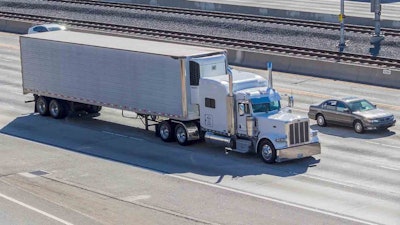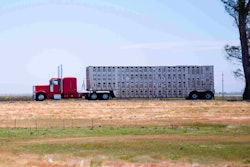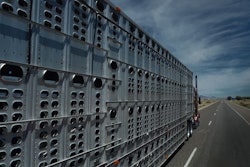
The House Appropriations Committee on Wednesday stamped approval on a 2019 Department of Transportation funding bill that would give livestock haulers until October 2019 to adopt an electronic logging device, if the bill clears Congress. It also would block states from enforcing their own meal and rest break laws for interstate truck drivers, as detailed here by Overdrive earlier this month.
The bill now moves to the full House for consideration.
Added to the bill during the markup process by the Appropriations Committee was an amendment that requires the DOT to provide Congress a report on the pros and cons of allowing 33-foot twin trailers. Federal law currently restricts “pups” to 28 feet.
Congress has already exempted livestock and bee haulers from compliance with the ELD mandate through September 2018. The House’s DOT funding bill, if passed as-is, would extend that waiver to the end of the 2019 fiscal year — Sept. 30, 2019.
The Appropriations Committee’s bill also is the latest to include the so-called Denham Amendment, which seeks to exempt carriers from any state-level laws that require them to provide drivers with meal and rest breaks beyond those required by federal hours of service regs.

Backers of the Denham Amendment say it’s needed to prevent an ongoing wave of lawsuits against carriers from attorneys and drivers and to prevent carriers from having to comply with variances in state laws across the country.
Those who oppose the Denham Amendment, such as the Owner-Operator Independent Drivers Association and the Teamsters Union, say it strips drivers of paid breaks allowed by state laws. Read more on the Denham measure at this link.
The Senate has not yet begun work on its 2019 DOT appropriations bill. It likely will produce its own version, which would then require the two chambers to meet to develop a unified bill, at which point any trucking measures would be on the table for consideration.









